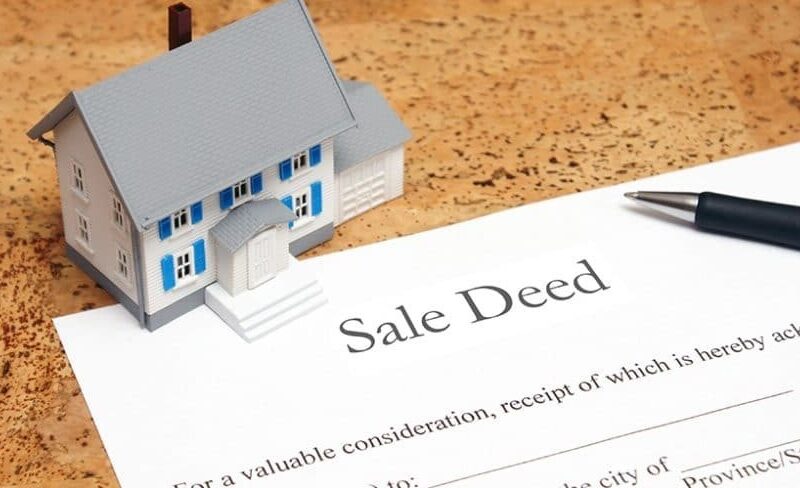MyLawPoint for property document verification was 100% worth it. Initially, I hired a lawyer for bank loan document processing but was disappointed with their professionalism. MyLawPoint connected me with an expert advocate who articulated all possible pitfalls in purchasing the property (DC Survey 66/1 Chikkanagamangala) from Reliaable Developer. Their detailed legal report helped me avoid a potential loss of 80 lakhs. I'm grateful for MyLawPoint's excellent coordination and swift document collection. Thank you to their team for saving me from a risky investment.
Property Registration (sale Deed Registration)
Property Registration (sale Deed Registration)
Basic Price
₹34,999.00 ₹19,999.00
Property Registration (sale Deed Registration)
What does Property Registration entail?
In India, property registration is a compulsory process governed by the Registration Act, 1908, which mandates the registration of all property transactions. This involves documenting the transfer of immovable assets to secure property rights as of the deed’s execution date.
How it works?
You can choose to upload all property papers online or collect hard copies.
A senior property lawyer will conduct analysis and generate a comprehensive report.
Your consultation session with a senior property lawyer to review and discuss your property report.
Your comprehensive property verification report will be delivered within 5 days.
What documents are typically required for property registration?
The property registration process generally involves:
- Assessing the property’s value.
- Obtaining the sale deed.
- Paying stamp duty and registration charges.
- Visiting the Sub-Registrar’s office for registration.
- Submitting necessary documents.
- Providing any additional documents as per local regulations.
What are the steps involved in property registration?
The procedure for property registration involves several steps:
- Submit the property documents to the office of the Sub-Registrar of Assurances within the property’s jurisdiction.
- The authorized signatories for both the seller and the purchaser, along with two witnesses, must be present for document registration. They need to carry proof of identity such as Aadhaar Card, PAN Card, or any other government-issued ID.
- If the signatories are representing someone else, they must provide a power of attorney.
- If a company is involved, the representative must carry necessary documents like a power of attorney/letter of authority and a copy of the company board’s resolution authorizing registration.
- Present the property card, original documents, and proof of stamp duty payment to the sub-registrar. The sub-registrar will verify if the appropriate stamp duty has been paid based on the stamp duty ready reckoner. Registration will be refused if there is any deficit in stamp duty payment.
- Stamp duty is the tax paid to the government for legal ownership, while registration charges are fees for completing the formalities in government records. Stamp duty varies by state.
- Many states offer rebates or waivers on stamp duty for women.
- Witnesses must establish their identity in front of the sub-registrar and provide their ID and address proofs. Their biometric identity will also be scanned during the process.

I purchased a flat in Hyderabad, but the builder delayed possession beyond the committed date. This caused significant financial strain as I was paying high EMIs and rent, leaving me with no money at month-end. Feeling stressed and helpless, I discovered MyLawPoint. Their Property Expert Lawyer suggested sending a legal notice to the builder and appealing to RERA for the delayed possession. Thanks to their guidance, I received compensation from the builder for the delay and finally gained possession of my flat. MyLawPoint's support was invaluable in resolving this effectively.
Malani

I had an exceptional experience with MyLawPoint. Their support throughout the entire process, from Property Paper Verification to the Sale Deed Registration, was truly comprehensive and invaluable. The level of service they provided exceeded my expectations, and I am highly satisfied with the outcome. Their dedication to keeping me informed with timely updates at every step of the way further showcased their professionalism and commitment to client satisfaction. I wholeheartedly recommend MyLawPoint to anyone in need of legal support for their property transactions.
Gerald Gilbert
Explore our other property services
Related products
Frequently Asked Question
No, stamp duty is not included in MyLawPoint's fee. It should be paid separately, and our lawyers will assist you in procuring it.
The time taken for property registration varies based on the sub-registrar office and property registration flow. Typically, after document submission to MyLawPoint, expect 3-7 days for lawyer-assisted property appointments with the local sub-registrar office.
Yes, while MyLawPoint handles appointments and formalities, your presence at the sub registrar’s office is required on the day of registration appointment.
Yes, an Agreement to Sell can be cancelled through mutual consent or if a condition in the contract permits cancellation. However, penalties or consequences may be specified in the agreement for cancellation.
Property Registration (sale Deed Registration)
In India, property registration is a compulsory process governed by the Registration Act, 1908, which mandates the registration of all property transactions. This involves documenting the transfer of immovable assets to secure property rights as of the deed’s execution date.
What does Property Registration entail?
In India, property registration is a compulsory process governed by the Registration Act, 1908, which mandates the registration of all property transactions. This involves documenting the transfer of immovable assets to secure property rights as of the deed’s execution date.
How it works?
You can choose to upload all property papers online or collect hard copies.
A senior property lawyer will conduct analysis and generate a comprehensive report.
Your consultation session with a senior property lawyer to review and discuss your property report.
Your comprehensive property verification report will be delivered within 5 days.
What documents are typically required for property registration?
The property registration process generally involves:
- Assessing the property’s value.
- Obtaining the sale deed.
- Paying stamp duty and registration charges.
- Visiting the Sub-Registrar’s office for registration.
- Submitting necessary documents.
- Providing any additional documents as per local regulations.
What are the steps involved in property registration?
The procedure for property registration involves several steps:
- Submit the property documents to the office of the Sub-Registrar of Assurances within the property’s jurisdiction.
- The authorized signatories for both the seller and the purchaser, along with two witnesses, must be present for document registration. They need to carry proof of identity such as Aadhaar Card, PAN Card, or any other government-issued ID.
- If the signatories are representing someone else, they must provide a power of attorney.
- If a company is involved, the representative must carry necessary documents like a power of attorney/letter of authority and a copy of the company board’s resolution authorizing registration.
- Present the property card, original documents, and proof of stamp duty payment to the sub-registrar. The sub-registrar will verify if the appropriate stamp duty has been paid based on the stamp duty ready reckoner. Registration will be refused if there is any deficit in stamp duty payment.
- Stamp duty is the tax paid to the government for legal ownership, while registration charges are fees for completing the formalities in government records. Stamp duty varies by state.
- Many states offer rebates or waivers on stamp duty for women.
- Witnesses must establish their identity in front of the sub-registrar and provide their ID and address proofs. Their biometric identity will also be scanned during the process.
Recommended Products
Related products
What our users say
Lorem ipsum dolor sit amet, consectetur adipisicing elit, sed do eiusmod tempor incididunt ut labore et dolore magna aliqua. Ut enim ad minim veniam, laboris consequat.
Anna Miller
DesignerLorem ipsum dolor sit amet consectetur adipisicing elit sed do eiusmod tempor incididunt ut labore et dolore Lorem ipsum dolor sit amet, consectetur adipisicing elit

Kevin Walker
DeveloperLorem ipsum dolor sit amet, consectetur adipisicing elit, sed do eiusmod tempor incididunt ut labore et dolore magna aliqua. Ut enim ad minim veniam, laboris consequat.

Ruth Pierce
Customer₹34,999.00 ₹19,999.00



